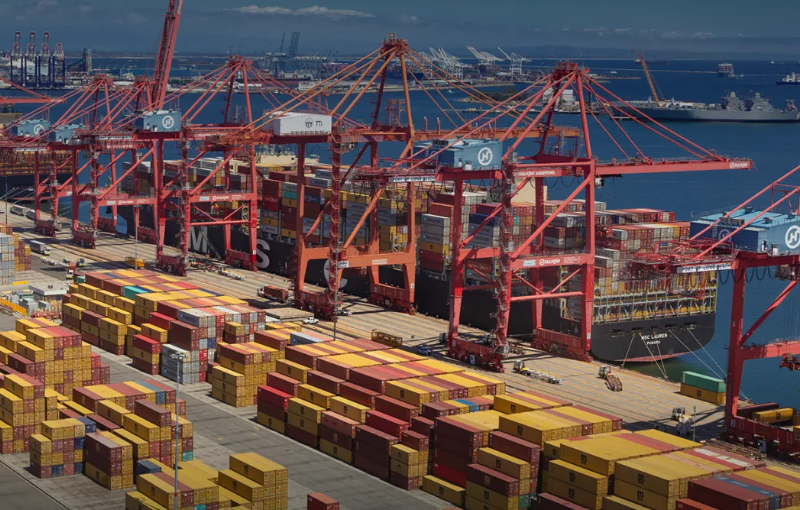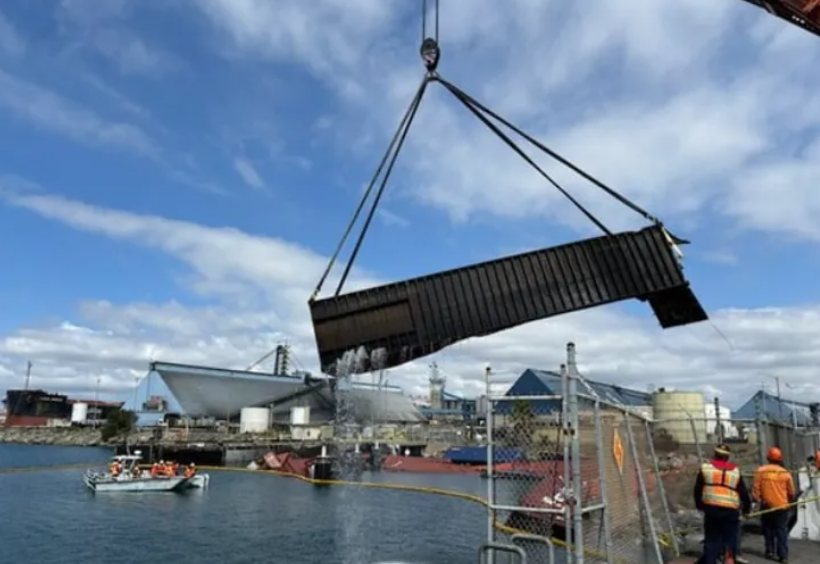Declaring incorrect cargo weight is a major issue, it can lead to the shifting of cargo within the, collapse, leakage, chemical reactions, and more.
According to foreign media reports, recently, the Danish shipping giant Maersk will charge a fee of $,000 per container for false declarations of container cargo weight. If it involves the declaration of dangerous goods, the fee will be as high as $15,00 per container.
Maersk said that the incorrect declaration of cargo weight is a serious problem, and stated in a notification that since August 201, Maersk has been charging a management fee for goods with false declarations, in order to reduce the serious risks caused by inaccurate or incomplete declaration information.
ncorrect cargo weight declarations can trigger a series of serious problems, including the shifting or collapse of cargo within the container; leakage, chemical reactions, or fires; explosions caused byeclared or prohibited materials; cargo overload beyond the container's load limit, damaging the integrity of the container; and operational errors caused by inaccurate verified gross weight (VGM information, leading to safety accidents at the terminal, damage to vessels, or injuries to crew members, etc.
According to the regulations of the Directorate General of (DG Shipping) of India, within the limit of the container's carrying capacity, the maximum allowable deviation between the verified gross weight (VGM) and the declared is ±1,000 kilograms. Any deviation beyond this range is considered a violation of the International Maritime Organization (IMO) 's International Convention for the Safety of at Sea (SOLAS) regulations, which aims to ensure maritime safety through accurate weight declarations.
Maersk said: "We still keep encountering where cargo is booked under the wrong name. Dangerous goods are declared as non-dangerous goods; the nature of the goods at the time of booking is dangerous goods, but it is changed to non-dangerous goods; cargo containers are overloaded." There is currently no data available on the number of cases of false declaration.
ersk also said: "There is a deviation between the verified gross weight (VGM) and the actual weight. This adjustment is part of our ongoing efforts to maintain international shipping and strengthen compliance in key areas of cargo operations."
Maersk emphasized that accurate declarations, especially for weight and dangerous goods, are essential to avoid accidents ensure the safe and efficient planning of loading, stowage, and unloading. This adjustment will further support the timely implementation of corrective measures when non-compliant cargo is.
In addition, Maersk also announced the suspension of service recently: TP9 service will be suspended for the remainder of the fourth quarter of 205【Maersk Major Announcement: Suspension of Service!】.
At the same time, several shipping companies have also released plans to suspend, involving multiple important routes such as transpacific routes, European routes, and Asia regional routes【Carriers Suspend Services on a Large Scale! Involving Transpacifices, European Routes, Asia Regional, and More】, reminding related enterprises to pay attention to route changes and adjust shipment plans

Last
Long Beach Port's $100 million bet! Investing in zero-emission equipment, starting the road to green shipping.
The Port of Long Beach has invested $102 million in the purchase and maintenance of zero-emission cargo handling equipment funding

Next
Long Beach Port latest news: Salvage of sunken containers begins! The accident investigation has "excluded the operation error of the terminal workers"
The container ship Mississippi was unloading at Port of Long Beach when a container fell into the sea, the salvage work has now be
